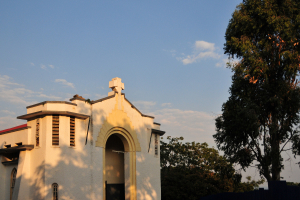Haiti Struggles to Rebuild Two Years After Devastating Quake
Two years ago, a devastating 7.0-magnitude earthquake rocked the small island nation of Haiti, leaving a footprint of destruction that is still felt across the country today.
The world was catapulted into sheer horror on Jan. 12, 2010, when much of the Haitian capital of Port-au-Prince crumbled, killing an estimated 300,000 people and leaving more than 1 million Haitians homeless.
Empathetic governments and citizens of the world rushed to donate billions of dollars in aid, food, medicine and launch massive rescue operations to help the millions of people in need.
Prior to the destruction, Haiti was already one of the poorest countries in the world, and many hoped that the country would turn around its misfortune and rebuild into a better, stronger Haiti.
However, two years on, the work in Haiti is far from done and agencies are expressing concerns that funds are drying up.
Billions of dollars in promised aid remains undelivered, while an estimated 550,000 people continue to live in displacement camps, dependent on aid agencies for the most basic of services.
Additionally, food insecurity is rampant, people lack access to safe drinking water, and hundreds of people a month are dying of the easily treatable waterborne disease cholera. The disease, which broke out a little more than a year ago, has already killed 6,700 Haitians and infected nearly 500,000 people. In fact, cholera is killing more people in Haiti than anywhere else in the world.
“There is a lot more we need to do to really get the Haitian people back on their feet,” Gareth Owen of Save the Children told The Guardian.
With only 52 percent of promised aid having reached Haiti, many international agencies are expressing the fear that the country is slated to become an “abandoned” disaster zone.
“It’s governments, it’s big donors. Those that promised cash in the immediate aftermath of the Haiti earthquake. At the moment we’ve got a $50-million shortfall that we really need to continue our life saving work,” Cat Carter of Save the Children told Sky News.




























